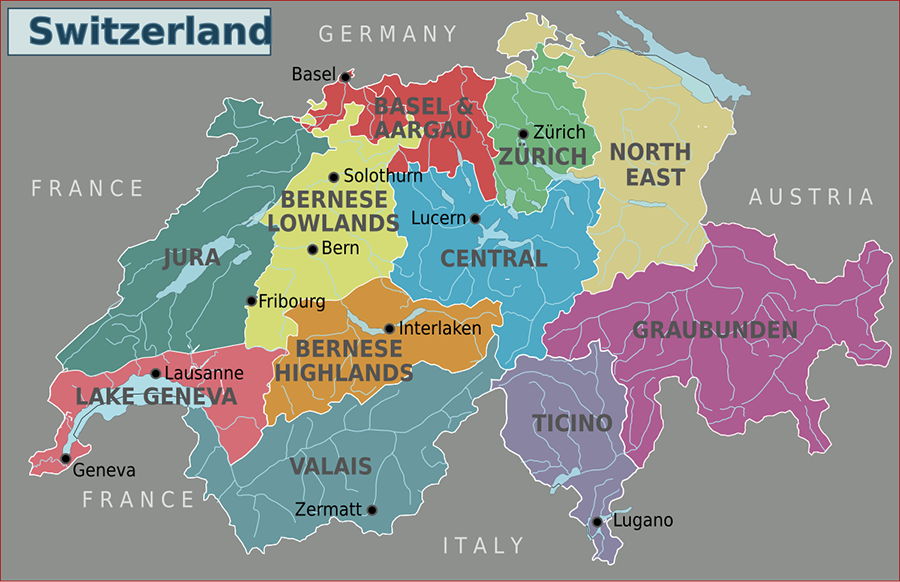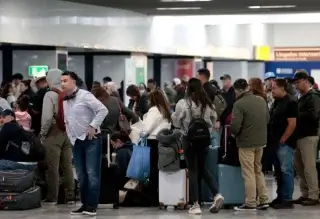read also
Switzerland to Hold Referendum on Simplified Citizenship Process

The Swiss Federal Chancellery has confirmed that a referendum will be held in the country regarding the citizenship initiative proposed by Aktion Vierviertel. The proposal, which aims to simplify the naturalization process, gathered 104,782 signatures, meeting the threshold required for a national vote, according to I am Expat. If the initiative to shorten the residency period for naturalization is approved in the next stage, millions of foreign residents could become eligible for Swiss citizenship.
Current Naturalization Rules
Under current Swiss laws, foreign nationals can apply for citizenship only after 10 years of residency and must hold a Category C permanent residence permit. Applicants must also pass:
Language exams (requirements vary by canton),
Naturalization tests,
Interviews,
In some cases, even a local vote (depending on the municipal council).
Applicants with a criminal record are generally denied citizenship.
According to Switzerland’s Federal Statistical Office (FSO), 41,200 people acquired Swiss citizenship in 2023. The majority came from European countries (34,100 people), followed by 2,500 from Africa, 2,500 from Asia, and 1,900 from the Americas.
What the Citizenship Initiative Proposes
The “Democracy Initiative” seeks to simplify the Swiss naturalization process. Swiss law mandates that once an initiative gathers enough signatures, it must be put to a referendum, though the date for this vote has not yet been set.
If approved, the proposal would:
Allow foreign residents to apply for Swiss citizenship after five years of residence, regardless of their type of residence permit.
Require only basic knowledge of a national language instead of the current stricter language requirements.
Retain serious criminal offenses and threats to internal or external security as grounds for ineligibility.
Arguments in Favor of the Reform
Aktion Vierviertel argues that Switzerland has one of the most restrictive naturalization policies in Europe. As a result, over a quarter of the population is excluded from democratic participation—about two million people living in Switzerland today are not Swiss citizens.
Additionally, around 600,000 people born in Switzerland have yet to obtain citizenship.
"They feel at home in Switzerland, their lives are centered here. It's time to recognize these individuals as full and equal members of society," states the organization. They believe the reform will make the citizenship system less arbitrary and provide security for expats, especially those who fear deportation if they lose their jobs.
Opposition to the Initiative
The “Democracy Initiative” is the first referendum on expanding citizenship rights in over 40 years. The last similar vote took place in 1981.
A previous initiative, “Together Initiative”, aimed at creating a more inclusive immigration policy and required the government, cantons, and local authorities to involve non-citizens in decision-making processes. However, 83.78% of voters rejected it.
Despite the fact that Switzerland’s non-Swiss population has grown significantly since the 1980s, and foreign residents cannot vote at the national level, it remains unclear whether this new proposal will gain majority support.
The Swiss People’s Party (SVP) is expected to oppose the initiative.
In 2023, during debates on the Democracy Initiative, SVP National Council member Gregor Rutz stated:
"Naturalization is the conclusion of the integration process, not its beginning."
He also emphasized that the 10-year requirement and naturalization tests exist to ensure that foreigners apply for Swiss citizenship not for economic or opportunistic reasons but because they are committed to Swiss values, culture, and civic responsibilities, such as military service.
"The balance between rights and responsibilities is becoming increasingly skewed. People demand more and more rights but are hardly willing to fulfill their duties," he concluded.
Switzerland’s Immigration Policy & Labor Market
Earlier, the Swiss Federal Council decided not to increase or decrease quotas for foreign workers in 2025. This means Swiss companies will be able to hire up to 8,500 highly skilled professionals from non-EU/EFTA countries.
Officials explained that quotas are necessary to meet the needs of the Swiss economy and to prevent a shortage of qualified professionals in key industries. However, priority remains with Swiss citizens, EU nationals, and EFTA members.
Despite the labor market demand, Switzerland remains a difficult country to immigrate to. In recent years, quotas have not been fully used—with 78% of slots filled in 2023 and 63% in 2024—due to the strict requirements:
Employers must prove that no suitable candidates are available in Switzerland or the EU/EFTA.
Candidates must possess specialized skills in demand within the country.
Switzerland continues to maintain a moderate immigration policy, emphasizing that migration should align with economic needs and not exceed the country’s social and infrastructure integration capacity.
Restrictions on Russian Nationals in Switzerland
Since February 2022, Russian nationals have faced stricter regulations in Switzerland due to the war in Ukraine. This includes tighter banking controls and financial restrictions.
For example, several clients of UBS and Credit Suisse, who hold dual citizenship with Switzerland, received account closure notifications, despite paying taxes in Switzerland and having no income from Russia.
Swiss banks now scrutinize all Russian-linked transactions, and there have been cases where accounts were closed due to past transfers to Russia, even if they were made many years ago for family-related reasons.
There have also been denials of deposit account applications from Israeli citizens who still hold Russian passports.
Russian Assets Frozen in Switzerland
In March 2022, the Swiss Bankers Association (SBA) estimated that Russian clients held CHF 150 billion (€154 billion) in Swiss banks. This estimate excluded real estate, company shares, artwork, vehicles, and other assets.
As of November 25, 2022, CHF 7.5 billion (€7.7 billion) in Russian assets and economic resources had been frozen under sanctions.
Switzerland has also banned Russian nationals from opening new deposits exceeding CHF 100,000 (€102,000).
Previously, foreigners with dual citizenship or Swiss residence permits were exempt from reporting restrictions. However, under new rules, almost any Russian national can now fall under Swiss financial restrictions simply based on their nationality.








